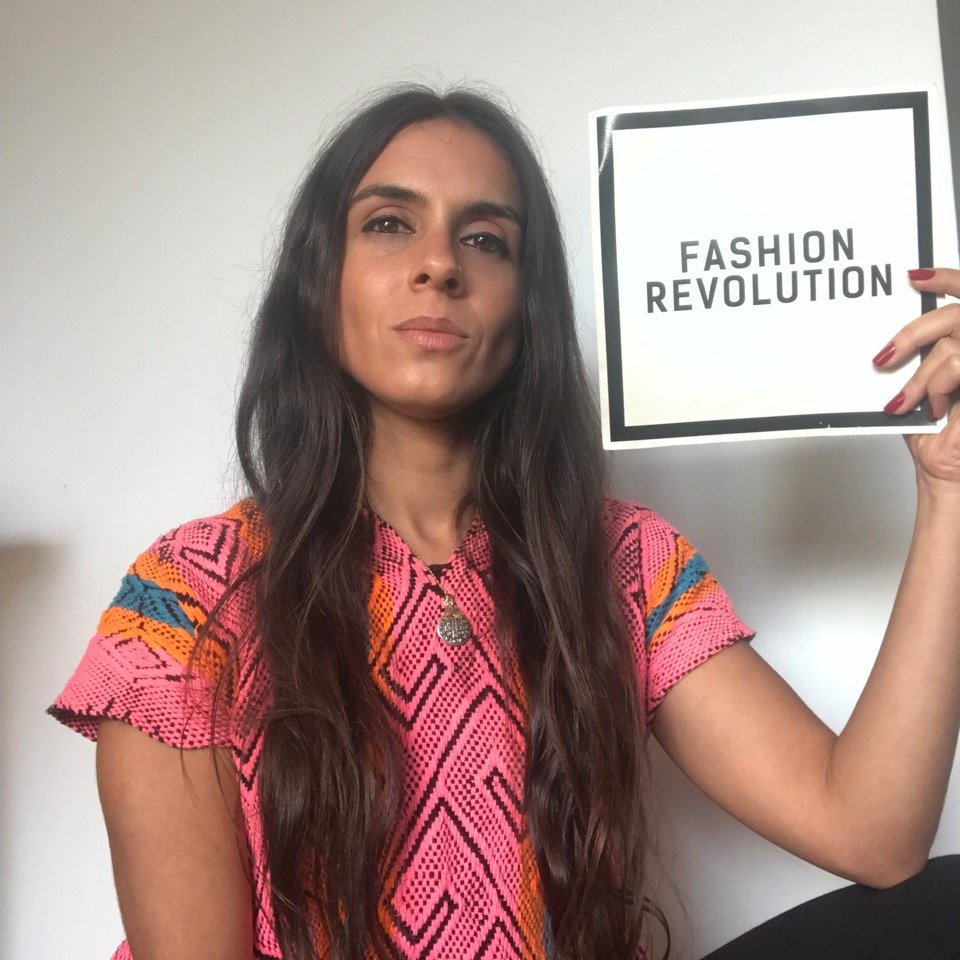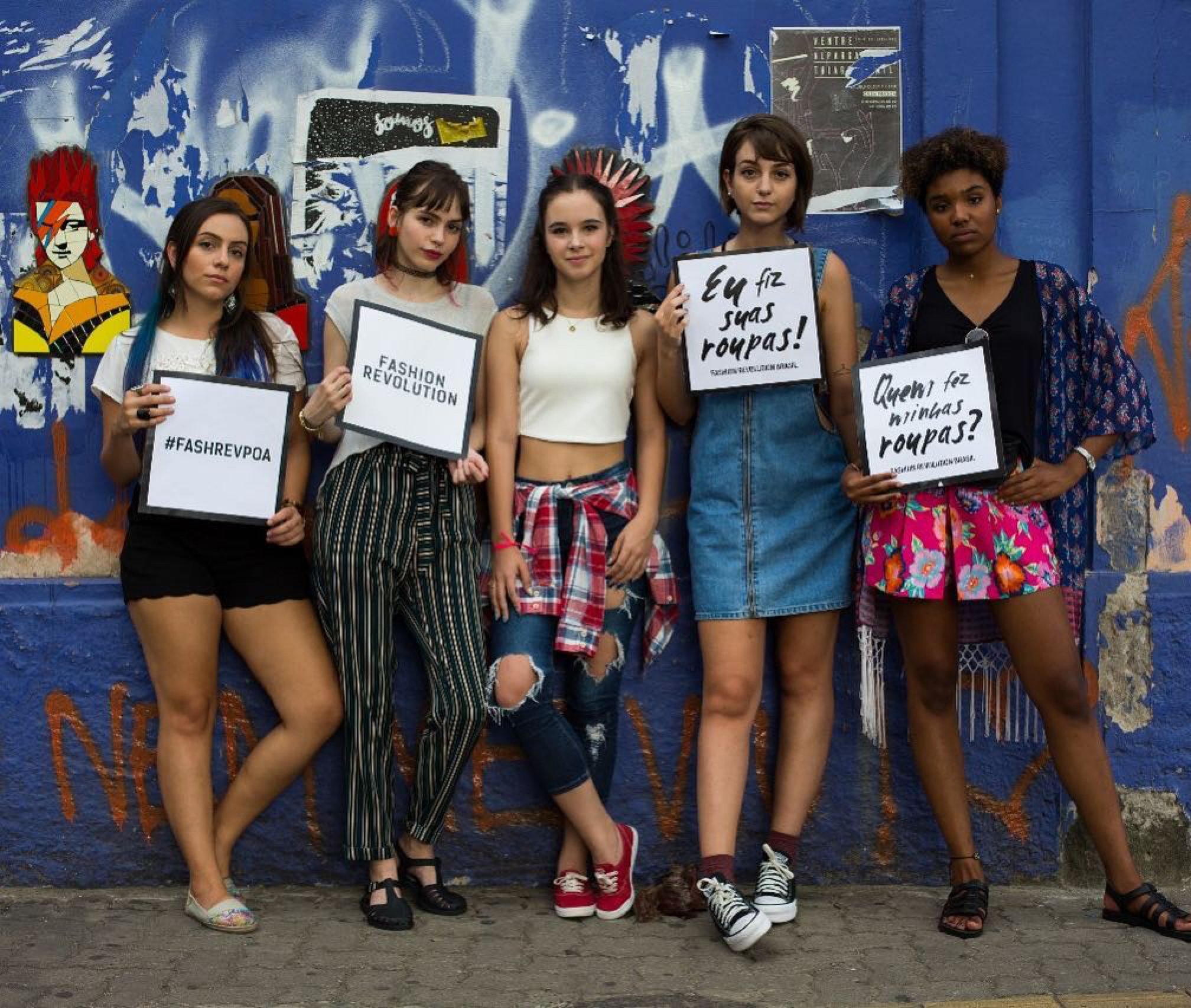Driving a fashion revolution in community
with Fernanda Simon
“If they are part of the problem, I believe that they must be part of the solution as well” - Fernanda Simon
Despite birthing some of the biggest fashion models Gisele Bündchen and Adriana Lima, we don’t often hear “Brazil” and “fashion” in the same sentence. When most of us think about Brazil, we are reminded of the rich football culture that inhabits the country. Like most places on this earth, fashion plays a major role in the economy of the country and boasts of its own ecosystem. The Brazilian textile industry is massive, with 10 billion garments being produced each year and the Amazon rainforest acting as the world’s number one breeding ground for the leather textile industry. Fernanda Simon, Director of Fashion Revolution in Brazil, started her story in this ecosystem. Having studied Fashion Design, the true cost of the fashion industry in Brazil started to sink in, especially after learning about the impact this industry has on the Amazon. After embarking on a spiritual journey that deepened her connection with nature, she became uncomfortably and acutely aware of the disconnect between fashion and the earth. This fueled her desire to drive change.
The intersection between Fernanda’s spiritual and sustainability journey is truly inspiring. In 2007, Fernanda moved to London and pursued a degree in Sustainability. Here is where she discovered Fashion Revolution, a movement that urges fashion to put the well-being of the planet and people first. Her strong desire to reconnect fashion with earth aligned with the core values of Fashion Revolution. She understood that fashion was more than just discussing how to generate profits off of “trendy” clothes. Fast forward to today, Fernandez has led Fashion Revolution in Brazil as Director since 2013, and is also the Sustainability Editor for Vogue Brazil. Fernanda continues to drive change within existing spaces such as her community, brands she works with, the media and the government of Brazil. One message is loud and clear: change starts from the inside out.
“I believe change can happen in everyone and I do believe that it is essential to start this change within ourselves, to be open to what is happening in the world. We must open our minds and our hearts to the reality of the planet now. To use fashion as a force of transformation, not just something that keeps us alienated from the world.”
In the beginning, conversations around fashion and sustainability in Brazil were very limited, Fernanda tells us. Seeing how passionate the people of Brazil are about the topic now, Fernanda admits that it needed to be built and was a work in progress since 2014. Often, conversations about fashion and sustainability are centred around the Global North. The lack of data, resources and materials pertaining to fashion and sustainability-related issues in the Global South, is what initially contributed to the lack of awareness in Brazil, according to Fernanda. Over the years, she and her team have worked locally to produce and promote their own research, share materials produced by local people and lead projects to support other movements. Notably, the Fashion Revolution Forum, which is a project that promotes Brazilian student-led research and a Fashion Revolution Book written by Brazilian women and researchers in the field of sustainable fashion.
“Before the pandemic, in 2019, we had more than 800 Fashion Revolution events in Brazil.”
The negative social impact of the fashion industry in Brazil is heartbreaking. Referring specifically to the conditions in which garment workers, mostly women(!), are placed. With 10 billion garments produced every year, Fernanda explains that it is important to raise awareness, not only within the community but also towards brands and ask them to take responsibility and provide clarity surrounding the working conditions. Alongside the social impact, lay the heavy environmental consequences of illegal gold mining and the cattle industry for leather production. Indigenous people are facing the destruction of their lands and rivers in the Amazon. Fernanda underlines the importance of supporting local organisations and indigenous people because the current government does not place nature or the indigenous people of Brazil high on their priority list. Today, only six per cent of the global population is made up of indigenous people, yet they protect eighty per cent of the biodiversity left in the world. With a total of 505 indigenous lands identified (covering 12.5% of Brazilian territory), the role these communities play in preserving the well-being of our planet is unparalleled.
“There is no recipe for how to change something…We [the media, brands, government and individuals] should take responsibility for our own actions, to create plans and to do something positive for the world.”
The sustainable fashion space can sometimes feel discouraging when we look at all the issues and it’s easily overwhelming figuring out whether you are doing the right thing. We wondered whether Fernanda ever feels that there is a conflict of interest working for Vogue Brazil, whilst also leading the sustainability movement. It can be easy to push away fast-fashion brands or spaces that seem problematic, but Fernanda beams with optimism. She recognises that the platform on which Vogue is built, is essential to driving change. “We must continue having conversations about fashion’s urgent matters and find a way to reach people”, Fernanda explains. Having had conversations within Vogue Brazil about fashion’s urgent matters and how Vogue Brazil can contribute to the changes happening within the fashion industry, she shares that Vogue is committed to engaging with these discussions.


